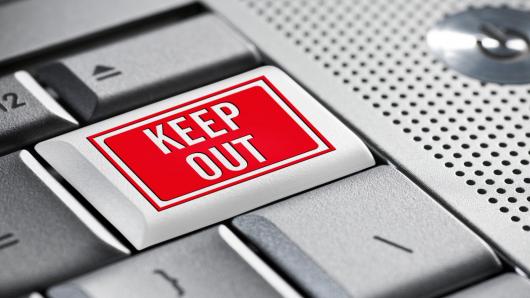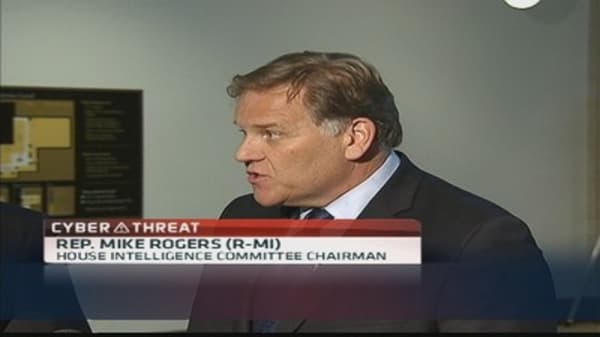The petition reads: "CISPA is about information sharing. It creates broad legal exemptions that allow the government to share 'cyber threat intelligence' with private companies, and companies to share 'cyber threat information' with the government, for the purposes of enhancing cybersecurity. The problems arise from the definitions of these terms, especially when it comes to companies sharing data with the feds."
The White House hasn't yet responded.
(Read More: Cybersecurity: Are You Protected From Your Own Employees?)
And while Microsoft and Facebook won't go as far as to say that they've pulled their support of the bill, the two companies, which both control a massive amount of personal information, are cautiously critical in their language.
Microsoft's corporate vice president of 'trustrworthy computing' said that the legislation "reflects important changes resulting from an active, constructive dialog, and that dialogue must continue."
Facebook, whose success lies in the ongoing confidence of its users, is very cautious about anything that could force it to hand over personal information.
"Protecting the private information people share on Facebook is the foundation of our service, and we support efforts to improve our ability to protect that information from cyber attack," the company said in a statement.
(Read More: Spearphishing: The Dirty Email Trick Favored by the Nastiest Hackers)
Facebook said it's encouraged by the work of the bill's co-chairs to "find a legislative balance that promotes government sharing of cyber threat information with the private sector while also ensuring the privacy of our users."
Next up, amendments will be made to the bill following Wednesday's mark-up. Then the debate will carry on in earnest next week for what Congress is calling "cyber week" as four cybersecurity bills are scheduled for a vote.
—By CNBC's Julia Boorstin; Follow her on Twitter: @JBoorstin





